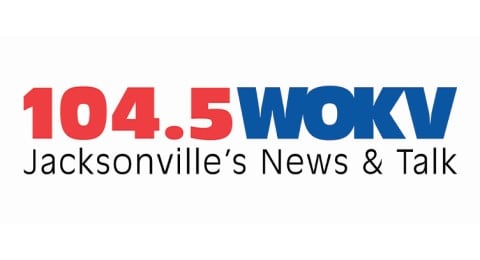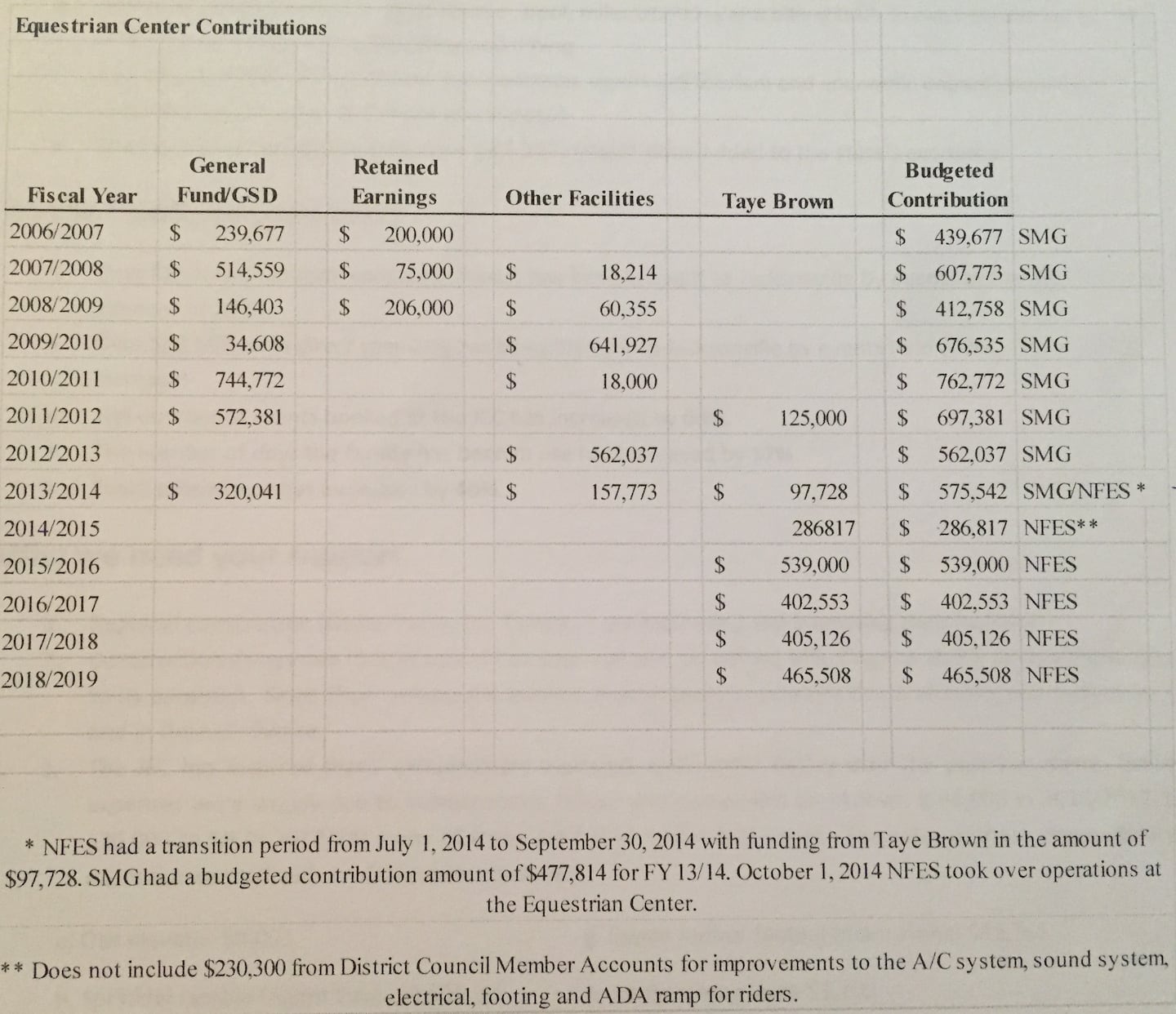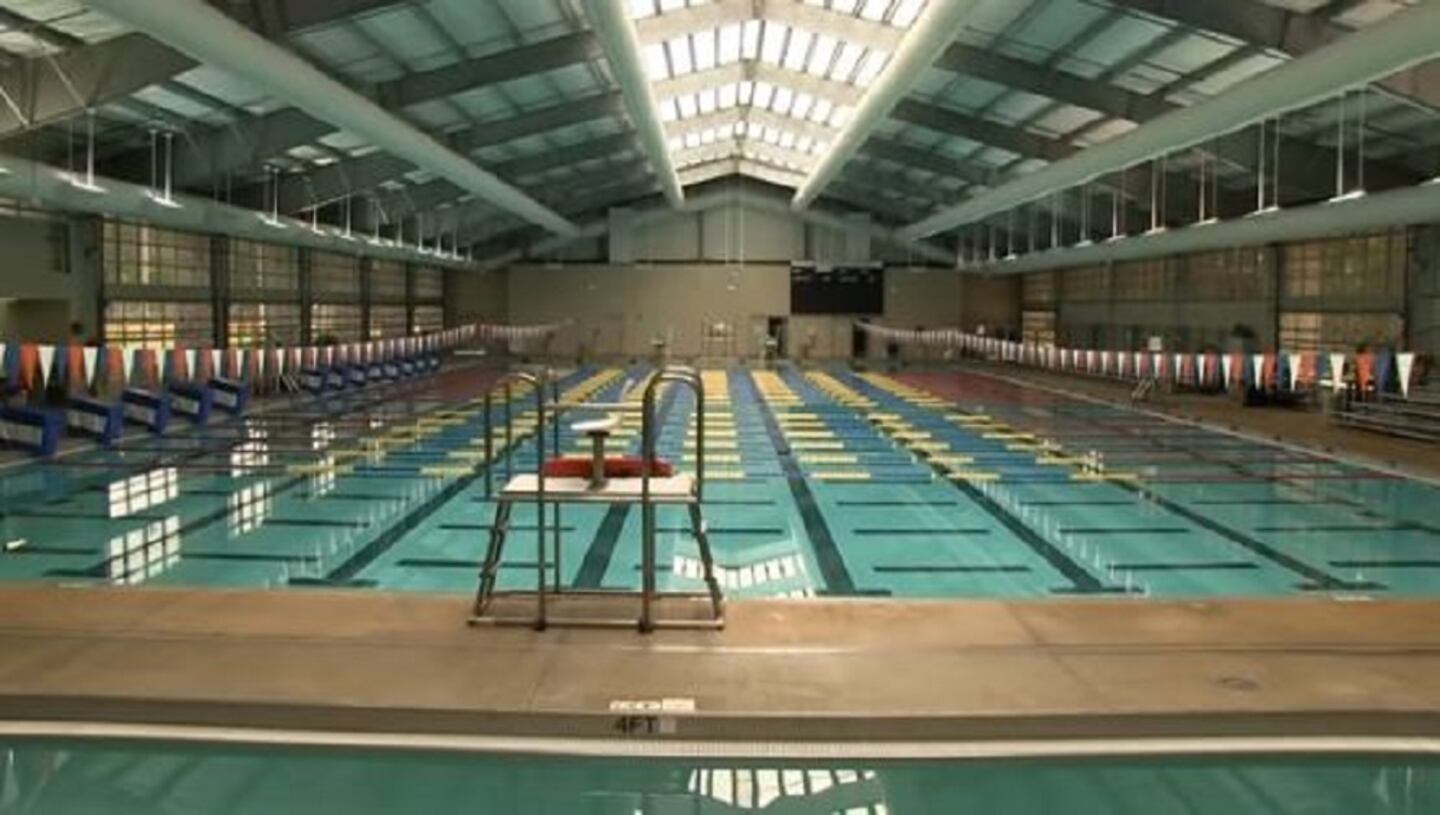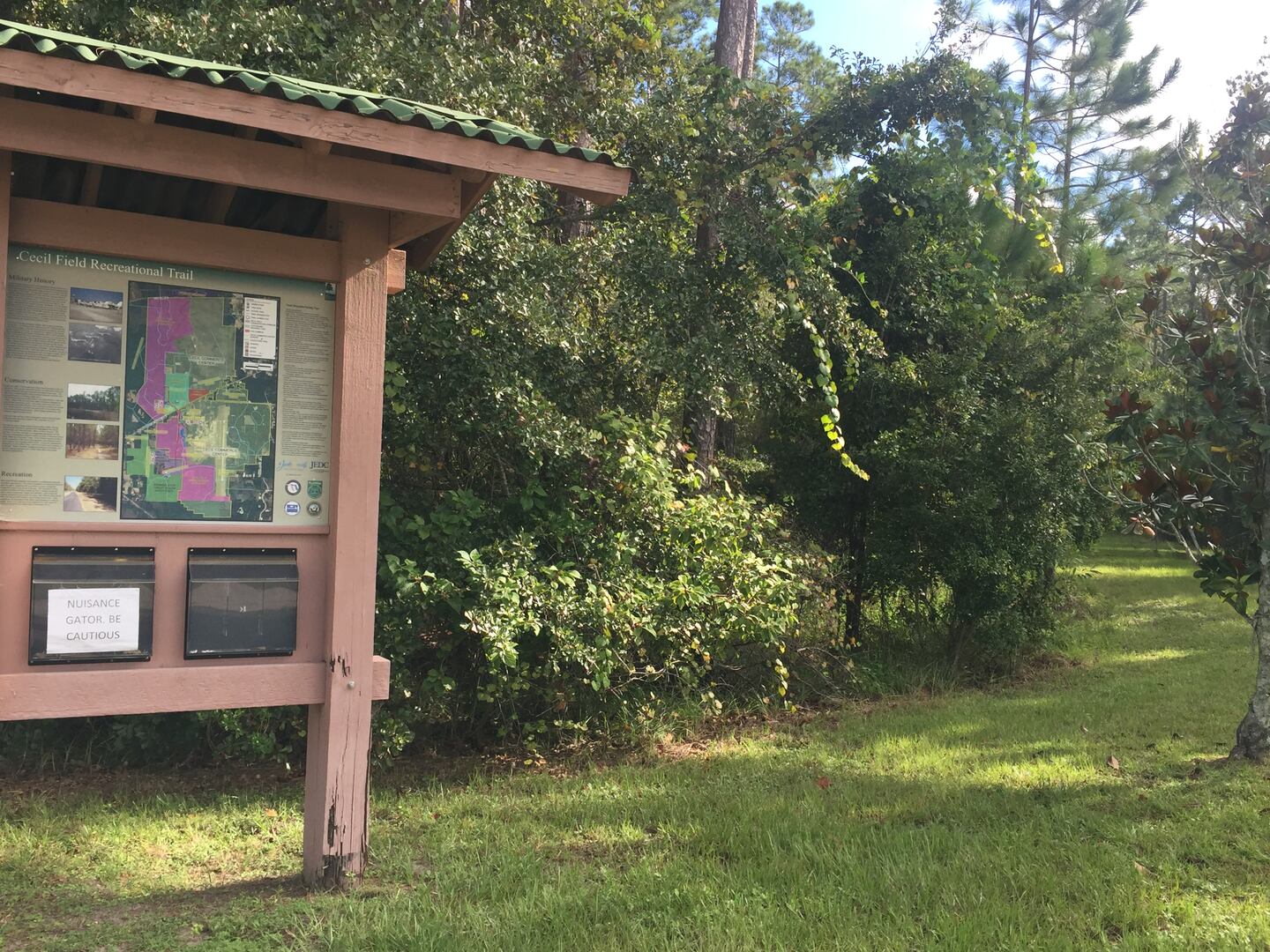Jacksonville, FL — While the Veterans Memorial Arena, Baseball Grounds of Jacksonville, and other Downtown venues are familiar to just about anyone in Jacksonville, there’s another City facility that sits along the Westside that, for years, has been known to a more niche audience- the Jacksonville Equestrian Center.
The nonprofit that runs the venue has been working to grow its use and exposure, but has faced funding challenges, construction setbacks, and other problems in that goal. Now, the Equestrian Center sits at a critical time, where the City has to determine how to fund it moving in to the future.
WOKV is bringing you a deep dive in to what’s brought this City-owned facility to this point, the funding questions looming, and how those involved believe it can turn around in the future.
History
In 2014, the nonprofit Northeast Florida Equestrian Society took over the management of the Equestrian Center from the City of Jacksonville’s contractor SMG. That company manages the other City venues, but the District Councilman at the time, Doyle Carter, convinced his colleagues that the Equestrian Center needed a more specialized touch.
NFES does not receive a management fee, but is instead only paid for “actual, reasonable, and budgeted expenses to perform the Services”, according to the contract with the City. That document further says operating expenses are to be funded by revenue from the Equestrian Center, which includes donations, admission fees, concessions, advertising and sponsorships, and related sources. Ticket sale revenue is used for funds for performers or incidental expenses for an event, with any excess also going toward operating expenses.
There is also the possibility to sell naming rights for various aspects of the Equestrian Center or even the Center itself, and that money would be used solely for capital improvements on site.
NFES has been generating revenue, and that’s grown since they’ve taken over, but it has not been able to meet the expenses. As a result, the venue gets a City subsidy every year to cover the gap.
Short term funding
The subsidy is not new- predating NFES management, the highest level was in FY 2010-2011, where the Equestrian Center received more than $760,000 from the General Fund, which is the portion of the City budget comprised of your property tax dollars.
When NFES took over, the funding was instead shifted to the Taye Brown Trust Fund, which is fed by a host fee for solid waste at the Trail Ridge Landfill, instead of tax dollars. Since they took full control in FY 2014-2015, the subsidy has largely stayed below the levels predating NFES management. In both this fiscal year and the last, the Equestrian Center received a little more than $400,000, but that number is up to $465,508 in the proposed budget for FY 2018-2019.
The numbers overall are also not matching projections for what NFES hoped to be doing at this stage.
During budget hearings last month, the Mayor’s Chief Administrative Officer Sam Mousa said NFES revenue wasn’t only short of meeting expectations, but they were going to be short for the fiscal year overall.
“This nonprofit has done a good job, but they’re beginning to slip here lately,” Mousa said.
The Jacksonville City Council voted last Tuesday to allocate $50,000 to be used to allow the Equestrian Center to continue operating through this month. This was Carter’s last bill on the Council, although he was not actually present for the vote, because he previously stepped down from his seat in order to run for Tax Collector.
The City Council bill also creates and funds an “Extraordinary Repair and Maintenance Budget”, which covers “large scale, non recurring repair of maintenance projects” like repairs from fire, storms, burglary, or structural failure, according to the contract. It further clarifies that the City is responsible for capital expenses over $2,500, which will be considered as part of the annual Capital Improvement Program that is put together during the City budget process.
NFES says this is a crucial change, because it makes the City’s responsibility clear, helps them streamline the process, and potentially provides access to more funding for these emergency, unexpected infrastructure and equipment issues.
NFES says the increase in this year’s budget proposal accounts for rising capital maintenance costs.
Between this fiscal year and the last, NFES says they have had some $90,000 in expenses come up because of infrastructure failure and equipment problems, including $9,000 for an elevator, $8,600 for the sprinkler system, $16,300 for repairing the indoor arena footing, $35,000 for equipment rentals, and more. They say, because the facility is now 14 years old and some of their equipment even predates that, issues like this aren’t uncommon, and are an obstacle to their goal of decreasing the subsidy the venue needs.
“We would like to work towards that and strive to work towards that, but again, as the building is aging, we’ve got repairs that need to be done. As our equipment is aging, we’re having to rent equipment,” says NFES Board Chair Peggy Fuller.
NFES tells WOKV these emergency repairs and a capital project not being constructed according to its timeline led to them falling short of projections.
The $50,000 in the City Council bill is coming from the Taye Brown Trust Fund as well, but that leads to another big decision pending in front of the Council, because the Trust Fund won’t be able to support the needed overall budget subsidy in the future.
Long term funding
The Taye Brown Trust Fund was identified several years ago by Carter and other Council members as a way to support the gap between the operating expenses and revenue at the Equestrian Center. The fund consistently brings in about $200,000 annually from the host fees, and is designated to use at the Taye Brown Regional Park, which includes the Equestrian Center.
The demands of the venue have drained revenue from the Trust Fund quicker than it has been coming in.
As a result, the Council Auditor’s Office says the Trust Fund has dropped from around $1.3 million in FY 14-15, to less than $450,000 as this fiscal year closes out. The FY 18-19 budget proposes $465,508 from the Trust Fund for the Equestrian Center. While the Trust Fund will be able to cover that, when the annual income from the host fee is considered, it will leave a very small balance, so the auditors do not believe this Fund will be viable for supporting the Equestrian Center in the future.
“The concern is noted. If the Taye Brown Trust Fund runs out of cash, you either have to cut back on operational expenses or supplement with the General Fund. That’s your two options,” Mousa said during the recent budget hearing.
IN DEPTH: Jacksonville's $1.2 billion budget proposal
During this year's budget hearings, Council members were cautious about adding any recurring expenses. While property values and construction have helped the General Fund overall grow in recent years, Florida voters will decide in November whether to give themselves an additional property tax exemption, which would leave an estimated $27 million hole in the City budget next fiscal year. That could make it difficult to absorb this venue's subsidy in to the General Fund.
But, through various budget and Council committee hearings, the ground has been laid for identifying some other funding line- General Fund or otherwise- not only because the Taye Brown Trust Fund will likely not cover the expense in the future, but because the City wants to allow the Trust Fund to recover, so it can be spent on the Taye Brown Regional Park overall, as initially intended. The Park is part of the Cecil Recreation Complex, with also includes ball fields, an Olympic-size pool, trails, and more.
“It needs to start building back up, so we can do other economic impacts out there for the Sports Complex. So, in the future, that’s going to be an issue that’s going to have to be taken care of,” Carter said during a Committee hearing on the emergency maintenance funding bill.
Growing in the future
The contract with NFES was initially signed through the end of the next fiscal year September 30, 2019. It has since been extended through September 30, 2024, according to contract documents. Parks, Recreation and Community Services Department Director Daryl Joseph says NFES has been making progress- but he’s urging the City Council to be realistic.
“I don’t want to paint the picture that this is ever going to be a revenue generating facility, because I don’t have that forecast. So, there may always be a need for a subsidy for this facility,” Joseph says.
That isn’t necessarily a concern to some on the Council, with Councilwoman Lori Boyer highlighting that the General Fund subsidizes other venues like the Arena, Baseball Grounds, and more. NFES further says how the City acquired the overall land requires it be used for active and passive recreational purposes, and since voters approved the Equestrian Center under the Better Jacksonville Plan, the City has a responsibility to make sure it’s maintained.
Councilman Bill Gulliford also says, while revenue has fallen short of projections, it is getting better.
“Some years ago, it was sort of desperate, so it’s really turned around,” Gulliford said during the Equestrian Center budget hearing.
NFES views themselves as similar to the Jacksonville Zoo and Gardens, where a non-profit operates that City venue. The Zoo, however, has received a $1.3 million allocation from the General Fund each of the last few years, and the Council is poised to approve a 5-year, $25 million capital funding plan to help the Zoo achieve their new Master Plan.
Joseph says NFES has been doing well in trying creative ways to create more revenue and solicit more and different events.
WOKV requested an interview with the City about the Equestrian Center, but received statements in response to our specific questions. They say it’s a “unique facility and venue” for Jacksonville, and they are “optimistic” about NFES’ commitment to improvement and what the future holds.
NFES believes they are on the right path to turning around overall. Coming up Tuesday on WOKV, we’re bringing you a closer look at that progress, and the big projects NFES believes can be the start of a bright future.















